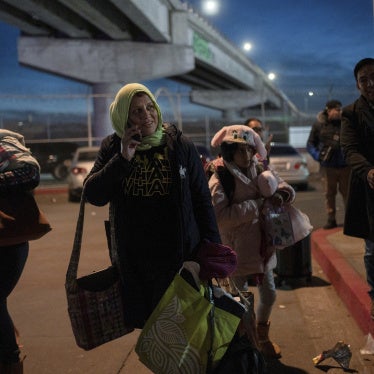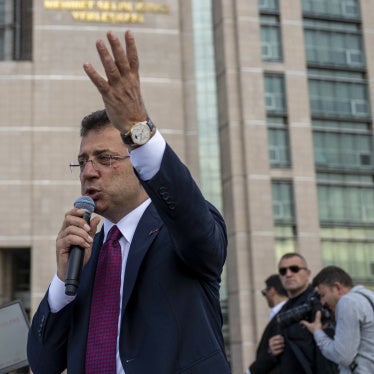Heavily armed soldiers. Children bloodied by razor wire. People running for safety. These were scenes from videos published over the weekend of Governor Greg Abbott’s Operation Lone Star. They show Texas National Guard members deployed in El Paso using increasingly aggressive tactics against asylum-seekers and other migrants — including small children.
Governor Abbott has called a third special session of the Texas legislature which started Monday, October 9. He’s called in the legislators not to rein in this conduct, but to consider extreme proposals that would most likely increase human rights violations and lead to long sentences for thousands of young Texans.
Human rights standards are clear that borders can be regulated without criminalizing migrants. With this special session, Texas is careening in the opposite direction toward a dragnet of criminalization that will bring chaos, violence, law enforcement pursuing people in high-speed car chases, and costly prison time to young Texans. Governor Abbott has called on legislators to create a state “illegal entry” crime with a sentence of up to 20 years, empower state and local law enforcement to arrest and deport asylum seekers, and create a mandatory minimum sentence of 10 years in prison for human smuggling.
The proposals build on Operation Lone Star — the mix of walls, “buoy barriers”, concertina wire, a separate and unequal application of the criminal law for people near the border, and Abbott’s high-profile busing of migrants to cities with Democratic leadership.
To be clear, Operation Lone Star — which has now cost Texas taxpayers $10 billion in spent or allocated funds — has not succeeded in reducing migration or drug smuggling. In fact, smugglers report that they are actually benefiting from the program, able to raise prices to navigate migrants around the saw-bladed buoys and razor wire Gov. Abbott and Texas DPS installed. One of the new legislative proposals — SB 4 — would create a 10-year mandatory minimum sentence for human smuggling and operation of a “stash house.” While being tough on smugglers may sound good, those most likely affected by the measure are actually thousands of young Texans. Human Rights Watch analyzed publicly available data counting people arrested on smuggling charges and booked into Operation Lone Star processing centers between June 2021 and July 2023. They were overwhelming young Texans, who defense attorneys say are often recruited on social media to drive people from the border further inland.
Nearly 80 percent of those booked for smuggling were U.S. citizens. Their median age was 26, and nearly 13 percent of those charged with smuggling were ages 18 or 19. Defense attorneys told us they’ve had clients arrested for smuggling who were in the 9th grade.
An analysis of Texas’ Public Safety Report System by the Vera Institute of Justice found that 5,164 people were charged with smuggling and continuous smuggling between April 2022 and March 2023.
These crimes currently carry no mandatory minimum sentence, and an analysis by the ACLU of Texas found the average length of imprisonment for these offenses was approximately one year. According to Texas defense attorneys, the proposed mandatory minimum of 10 years is a longer mandatory sentence than some people convicted of murder or rape in Texas will serve.
The mandatory minimum sentences proposed by SB 4 will almost certainly do little to reduce migration. Mandatory minimum policies and excessively long sentences are widely now viewed as ineffective and the introduction of such policies would do nothing to address the root causes of migration. But, it very well may fill prisons with thousands of young Texans who made a one-time mistake after they were lured by social media. Unfortunately, this is a road the country has gone down before. The United States has spent more than $1 trillion on “War on Drugs” over the last 50 years. These efforts have failed to curb drug overdoses or stop the criminal organizations that feed on the drug trade. But they have filled prisons with young people — overwhelmingly Black and Latino young people.
Texas can and should do better this time around.









